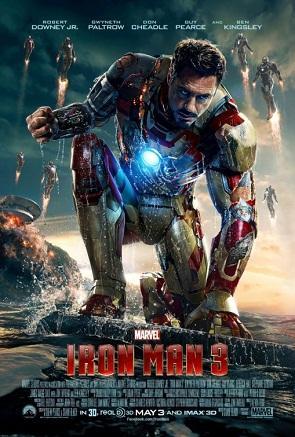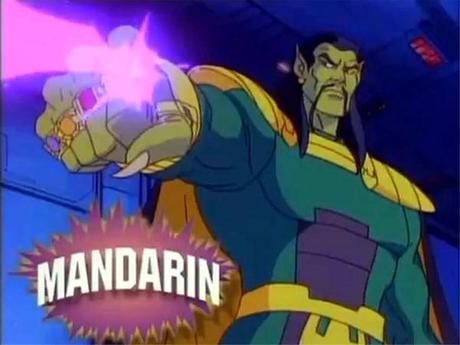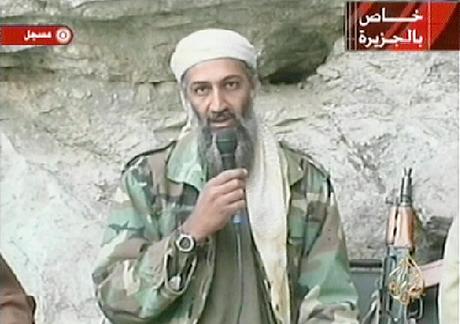
WARNING: This review is loaded with spoilers. If you have not seen Iron Man 3 yet, do not read it. Seriously, you don't wanna read this. I had the movie spoiled for me and it suuuucked. Don't be like me. Stop reading this and get to the theater before some other asshole ruins it for you. Now. Go. Immediately.
So by now most of you probably have had a chance to see Iron Man 3. Which is good, because I don't want to just beat around the bush for four paragraphs and end up saying little more than "it's really good, but I can't be too specific on why". For me, reviews aren't about recommending or not recommending a film. They're for film discussion, for contextualizing and hearing different viewpoints on a movie you've just seen. So with that in mind, let's talk about what we all saw this weekend (unless you're in Europe or Asia, in which case you saw it weeks ago, so lucky you).
One of the things I love about Marvel studio's films is the fact that they somehow manage to deliver superhero films that are groundbreaking in their faithfulness to their source material in look and tone, while still allowing their directors the creative freedom to make the films their own. The Avengers is unmistakably a Joss Whedon film. Captain America is unmistakably a Joe Johnston film. Thor is unmistakably...half a Kenneth Branagh film. And in that fine tradition of creative tightrope walking, Iron Man 3 is unmistakably a Shane Black film. Christmas setting, neo-noir elements, snappy banter, black comedy, he's completely in his element, and it's glorious to behold.
Iron Man 3 has already proved rather polarizing, and for good reason: It lied to you. Brazenly so. I'm a little surprised no one's tried suing for false advertising yet. I've certainly heard dumber reasons to sue a movie. But that is one of the film's greatest strengths. Iron Man 3 has given us a rare of example of using the advertising campaign to deliberately set up false expectations, making this film's impact stronger as a result. The film advertised was essentially Iron Man's The Dark Knight, a brooding, gritty tale of a hero being brought low by a mysterious, chaotic villain. What we got was very different. Certainly our hero was indeed brought low only to rise from the ashes reborn. But the tone was far from oppressively dark, and our grand villain, a long awaited fan favorite character finally brought to the big screen, was not the Joker-esque mastermind we were promised. He was in fact a fraud, a fake, a red herring to distract us from the real enemy.
Naturally this has many Iron Man fans upset. We've become used to Marvel studios bringing us astoundingly accurate translations of comic book characters and stories, far more so than most other studios dare. So such a major deviation from the source material now seems a bit out of left field. But this was absolutely the right move, and it explain why, we need to examine the roots of the character in question: The Mandarin.

It was commonly understood that the Mandarin was always going to be a little difficult to adapt for the very simple reason that the idea of the character was hopelessly archaic. The Mandarin was a product of the communist paranoia that so plagued our culture during the Cold War, a Fu Manchu meant to represent the threat of Communist China. Obviously the Cold War is long over and the Yellow Peril stereotype is no longer considered acceptable, and rightly so, not just for the business reasons of economic reliance on China, but because it's, you know...incredibly racist. Nontheless, the Mandarin is Iron Man's most well known and enduring nemesis, so it was inevitable that he would have to turn up at some point. But how to go about it?
I imagine Shane Black and his writing team approached the problem like this: What was the Mandarin? Or rather, what was the Cold War era communist villain archetype he represented? A Bogeyman. A face to hate. A contextualization to fears too big to process. Fear of the unknown, of the uncontrollable. Back when the Mandarin was first created, our Bogeyman was communists. Who is our Bogeyman today?

...Yeah. So much did one man terrify the world with his one great atrocity, that ever since we react with hostility to anything that even reminds us of him. In the 50's you could be labeled a security risk by the government if they even suspected you of being communist. Now you can be labeled a security risk for being Muslim or of Middle Eastern decent. We protest the building of Mosque's. We get nervous aboard airlines if one of our fellow passengers happens to be wearing a turban.
So we've established who our Bogeymen are, and were. And there's one important thing about Bogeymen: They aren't real. Not that there's no threat, simply that the great terror we've built up in our minds is the product of irrational fears, an entity unto itself wholly separate from anything in the real world. Human beings are a panicky, reactionary lot. When something scares us, we need to put a face to it. We need to simplify it in our minds, whether the actual situation is simple or not. We don't like the idea of a enemy we can't recognize, so we find it simpler to assume everyone who fits a simple set of criteria is the enemy.
And that's the genius of Shane Black's Mandarin. He took this Bogeyman, this product of paranoia, and showed it for what it was. He updated the image, made it resemble a more recognizable present fear. Then he took the mask off and showed us what we were afraid of all this time doesn't really exist. "We create our own demons" as the film reminds us.
I know this is small comfort to many of you. You were hoping to see a beloved character you've been following for decades brought to the big screen, and instead you got a lecture. Believe me, I know. The Mandarin was one of the first super villains I was exposed to, back when I used to watch Iron Man on The Marvel Action Hour when I was a kid. So I feel your pain. But understand that what you want would never have worked. Like it or not, the Mandarin is hopelessly dated, and represents some very wrongheaded ideas. It would not have been the responsible thing to do as a filmmaker to make a movie out Iron Man battling a Bin Laden-eque super villain. This is what we needed to hear. This the Mandarin we needed to see: A mask concealing the true villain.
Of course, Ben Kingsley definitely helps sooth the fanboy rage with his magnificent performance. It's impossible to be mad at the reveal, with this lovably pathetic drunken fool being so entertaining to watch. And it contrasts so well with the true "Mandarin" Aldrich Killian, and I love the sinister swagger Guy Pearce plays him with. The cast overall is a major strength of the film. Robert Downey Jr. feels right at home teaming back up with Black after Kiss Kiss Bang Bang, Gwenyth Paltrow as Pepper Potts finally comes into her own as a character, and James Badge Dale is a fun, sleazeball of a secondary villain.
There were a few things that didn't quite work for me. Rebecca Hall's character felt underwritten, almost like a half done character who they never got around to finishing, and Black's usual penchant for chaotic, tangential plot threads doesn't always quite work out in the end. But nitpicks aside, this is easily the best Iron Man movie and one of the best Marvel has ever produced. Clever, unpredictable, bold as hell, and did I mention the score? It's gotta really good score.

